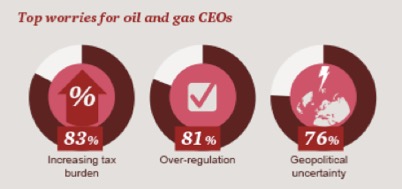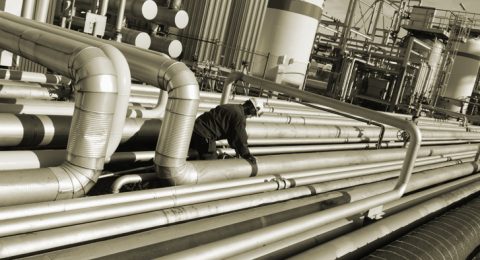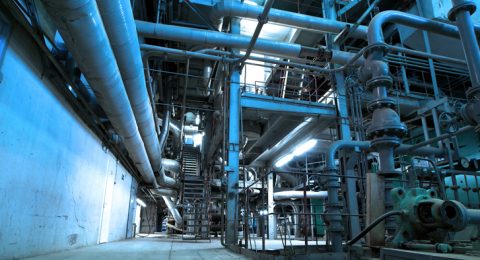There are thousands of politically alienated and radicalized militants joining its ranks. There is an army of its supporters active on social media spinning its messages. They are releasing videos as gruesome as they are stylistically and technically advanced. Most notably, the group is shocking the world with its ability to rapidly expand its territory. This is IS, the self-proclaimed Islamic State of Iraq and Levant, a terrorist organization born from the ashes of Al-Qaeda in Iraq that is seeking the establishment of a new caliphate.
Unlike other jihadist networks however, IS has set the tone for a somewhat different model of organization. Between distorted references to the Islamic golden age and modernity, it does not limit itself to dream of a global caliphate as Bin Laden used to do.
IS is actively seeking statehood, imposing laws, collecting taxes and financing itself. Its model, however, is closer to that of mafia-state than a country, as it is funding its activities with a mix of taxation and criminal activities. According to senior U.S. officials, the Islamic State is the “best funded terrorist organization in history.”
Raqqa is Being Slaughtered Silently (RBSS); a Syrian activist collective secretly documenting life under the Islamic State, has recently released a report investigating the way the group finances itself. According to RBSS, the group fines smokers and even those late to prayers for minor violations of the strictly observed Sharia law, while commodities such as communications, fuel, electricity, and healthcare services are heavily taxed. Among the most profitable legal trades in the city are the hundreds of internet cafes that have, somewhat ironically, expanded under IS rule in Raqqa. The organization itself is the only provider of expensive satellite connections.
IS is differentiating its sources of income and funding, setting up trade routes for agricultural and manufactured products and offices to collect custom duties. At the same time, it allegedly produces and smuggles illegal drugs, turns a blind eye on alcohol consumption in exchange for bribes and is active in the trafficking of Syrian and Iraqi antiquities sold to art collectors around the globe. Kidnapping and extortion rackets are another major source of income.
The efforts to build an efficient administration and a modern state, however, would have likely been useless without the nearly $1 million a day IS is pocketing from selling oil and fuel on the black market – according to a report by the U.S. Treasury Department issued last October. Emirati experts have placed the figure much higher at nearly $3 million a day. It is thanks to this large stream of revenue that the caliphate has been able to pay hundreds of dollars a month in wages to its fighters and civil servants.
The exploitation of oil fields to finance military activities is not a new phenomenon in the chaos of the Syrian civil war. Jabhat al-Nusra, the Syrian branch of Al-Qaeda, along with other rebel groups managed to seize control of much of Deir Ezzor – an oil rich province in eastern Syria – in November 2013. The conquest of the region by Al-Qaeda-inspired militants was seen as a possible turning point in the war. In fact, without the Deir Ezzor fields, the embattled regime of Bashar Al-Assad was left with virtually no local oil to fuel its highly mechanized military campaign against the rebels.
Deir Ezzor took on the utmost strategic importance as armed groups competed for scarce resources. It did not take long before IS clashed with Al-Nusra to gain control of the oil fields between April and July of 2014. Soon after their victory, IS also moved to conquer fields and refineries in northern and eastern Iraq.
What has shocked even experts and engineers well-versed in working in the oil-fields now under IS control is the speed at which the organization was able to pump oil to neighboring countries. In the midst of war and destruction, and with civilians escaping the terrorist group’s black flags, the Islamic State was able to quickly restart production and to re-activate smuggling networks from the era of Saddam Hussein.
The self-proclaimed Caliph Abu Bakr Al-Baghdadi first recruited engineers from Syria who were either previously working for Al-Nusra or for the regime of Bashar Al-Assad. In Iraq, the group coerced local staff to working in the fields by threatening to kill their family members if they did not collaborate.
However, these workers were not enough, and IS was forced to hire more skilled workers. Thus, in an audio message disseminated in early July of 2014, Al-Baghdadi called for skilled Muslim workers to immigrate to the Islamic State. “Judges and those who have military and managerial and service skills, and doctors and engineers in all fields” were particularly needed, he said.
This call probably did not produce enough skilled recruits, as in autumn 2014 IS allegedly posted a job offer for “an experienced and zealous manager for its seized oil fields” and was recruiting skilled professionals who were “ideologically suitable.” According to The Times, they offered $225,000 a year to the manager.
Less than six months after seizing oil wells and refineries in northern Iraq and Syria, the terrorist organization was able to maintain a considerable level of extraction and to establish trade routes out of the territory it controls. Even though production is high, various experts and reports warn that it could climb higher. Currently it is not running at full capacity due to a lack of technology and personnel.
Louise Shelley, a professor at George Mason University and Director of the Terrorism, Transnational Crime, and Corruption Center, estimated IS production to be around 44,000 b/d a day in Iraq and 4,000 b/d in Syria. This oil, however, is “toxic” for established companies and governments, as no one wants to be accused of financing terrorists. The crude oil is thus sold at a discount price to middlemen, refined and then sold on the black markets on the other side of the Iraqi or Syrian borders. IS also earns money by charging fees to the middlemen and collecting taxes at checkpoints through which the oil passes.
In northern Syria, fuel is pumped through pipes hidden underground to middlemen in southern Turkey, who then pass it on to the larger market. In Iraq, one of Al-Baghdadi’s lieutenants reached out to well known Saddam Hussein-era oil traffickers and Kurdish ruling families to reactivate the old, but very lucrative, smuggling network. In the south, crude oil is transported overland to Anbar province. It is then loaded on tankers bound for Jordan.
The thirst for cheap oil has drawn IS’ own enemies into the business. Turkish, Kurdish, Jordanians, Iraqis and Iranians all take part in the trade. They work as middlemen or in oil refineries. The oil is then returned to the Islamic State for distribution in the areas it controls. The Assad regime has also allegedly arranged to buy oil from IS.
Despite the regional ramifications, the impact of IS’ oil on the global economy has been minimal. Syria is not particularly rich in natural resources and the Syrian Observatory for Human Rights estimates that IS controls approximately 60% of Syrian oil. The bulk of Iraqi oil is in the Kurdish areas and the Shia-dominated south – out of reach of the Islamic State. The fields seized by IS in Iraq are considered marginal. The group has enough resources to sustain and finance its military and state-building efforts, but not to threaten the global economy. The most feasible way for them to influence the global market would be to secure the areas around Kirkuk, possibly pushing its production up to a million barrels a day. Kurdish forces hold these areas however, and it is unlikely that the Kurds would relinquish them without a fight.
It is not clear whether the plunge in global oil prices will affect IS. The Islamic State might be hurt by lower prices as it is forced to discount further to sell on the black market. At the same time, however, it has other significant sources of funding and about six million people living under its rule – thus allowing potential for an internal market.
In an attempt to dry up its sources of funding, over the past three months the US-led coalition has attacked energy infrastructure controlled by IS in Iraq and Syria. Alongside the military strikes, the Obama Administration has put pressure on Kurdish autonomous authorities and Turkey to better patrol border areas and crack down on notorious middlemen and smugglers.
“We have taken the production down, disrupted the trucking routes and made it more difficult to get the oil across the border. But more still needs to be done,” said Amos Hochstein, the State Department’s special envoy and coordinator for international energy affairs. However, Raqqa is Being Slaughtered Silently reported that IS is still extracting crude oil using primitive ways and technology and that the fuel trade is still highly profitable. As long as the Islamic State is in control of oil fields in Iraq and Syria, smuggled black gold will continue to fund extremism in the region.








